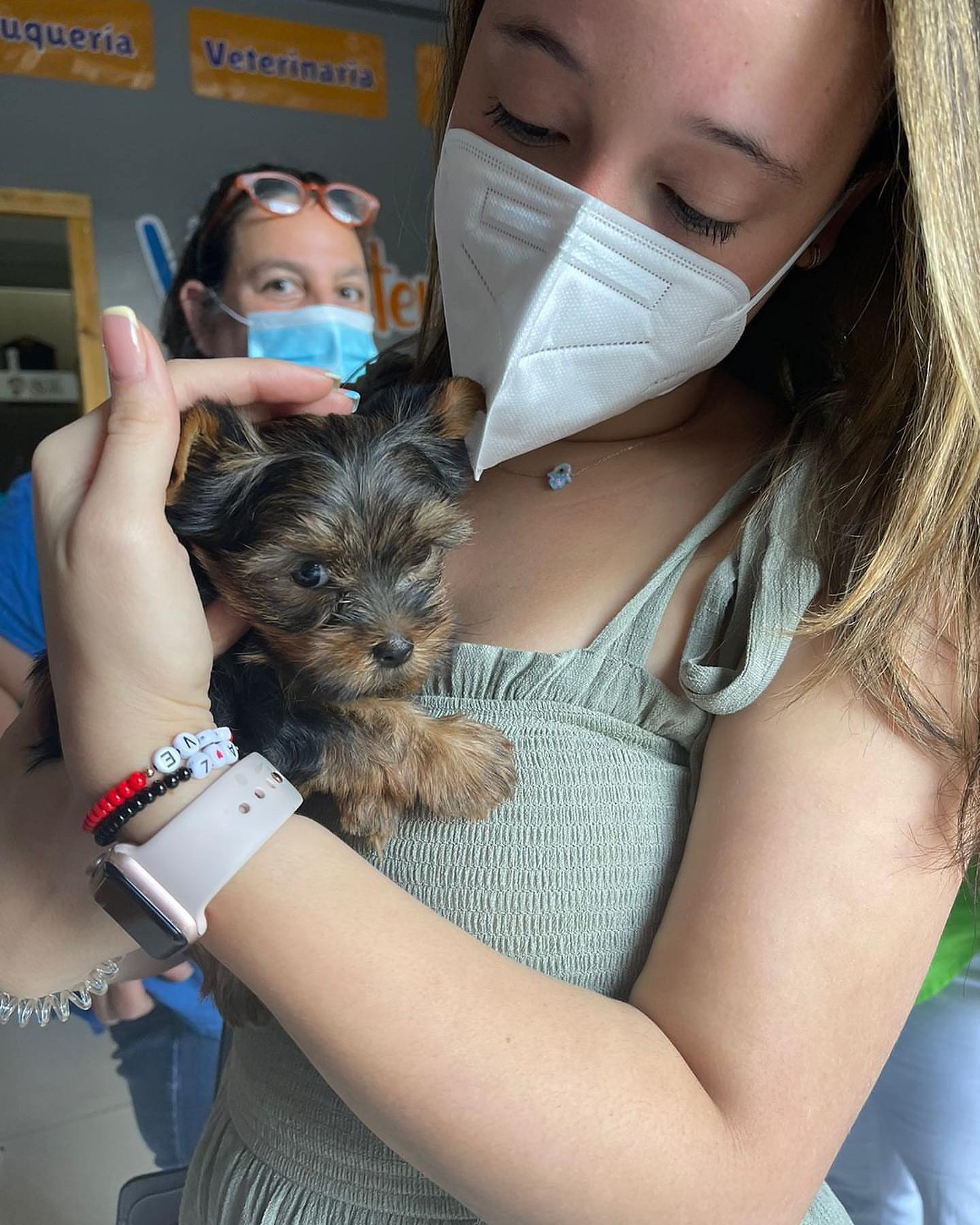Yorkie Puppies In Distress Isn't As Difficult As You Think
본문
Understanding and Addressing Yorkie Puppies in Distress: A Comprehensive Guide
mini biewer yorkshire terrier kaufen Terriers, fondly referred to as Yorkies, are small dog breeds renowned for their dynamic characters and captivating appearances. While these little companions typically exude happiness and affection, there are times when they might experience distress. Comprehending the indications of distress in Yorkie puppies, the potential causes, and how to successfully deal with these issues is important for any accountable pet owner.

Signs of Distress in Yorkie Puppies
Recognizing distress in Yorkie puppies is key to ensuring their wellness. Symptoms may vary but typically consist of:
| Signs of Distress | Description |
|---|---|
| Extreme barking or grumbling | Increased vocalization can indicate anxiety or discomfort. |
| Hiding or withdrawal | Puppies might look for seclusion when feeling threatened or terrified. |
| Loss of appetite | An abrupt decline in food intake can be a distress signal. |
| Hostility or irritation | Uncharacteristic hostility might emerge in a distressed puppy. |
| Shivering or shaking | Physical signs of stress and anxiety, such as shaking, prevail. |
| Harmful behavior | Chewing or scratching furniture can suggest tension. |
| Modifications in bathroom routines | Regular accidents indoors could indicate stress and anxiety or health problem. |
It's vital for owners to observe their Yorkie puppies carefully. Any substantial behavioral changes require timely attention.
Typical Causes of Distress in Yorkie Puppies
Comprehending what might be causing distress can help owners effectively respond to their puppies' needs. Typical triggers for distress in yorkie welpen tierheim puppies consist of:
Environmental Changes:
- Moving to a brand-new home.
- Introduction of brand-new pets or family members.
- Changes in regular.
Health Issues:
- Illness or discomfort can trigger distress not constantly visible at very first glance.
- Parasites, such as fleas or ticks, may irritate puppies.
Worry or Anxiety:
- Loud noises, such as thunder or fireworks.
- Separation anxiety when left alone for too long.
Lack of Socialization:
- Puppies that are not correctly interacted socially might become nervous in unknown situations.
Training Issues:
- Inconsistent training practices can result in confusion and stress and anxiety in puppies.
Addressing Distress in Yorkie Puppies
When a yorkie welpen preis puppy shows signs of distress, proactive procedures can be required to deal with the problem efficiently:
1. Create a Safe Environment
Supplying a safe space can alleviate stress and anxiety. This might include:
- Cozy den: Create a small, comfy area with blankets where the puppy can pull away.
- Familiar scents: Allow the puppy to have items that carry familiar fragrances, like toys or blankets.
2. Health Check-Up
If distress appears abrupt or extreme, a see to the veterinarian is advised to eliminate health concerns, which might include:
- Conducting an extensive examination.
- Running blood work or other diagnostic tests if required.
- Treating any determined health issue.
3. Progressive Exposure to New Experiences
For puppies showing fear or stress and anxiety:
- Introduce new experiences slowly.
- Usage treats and favorable reinforcement to produce positive associations.
4. Constant Training Approaches
Inconsistency can intensify distress, so:
- Implement standard training commands regularly.
- Use favorable support techniques to promote desired behaviors.
5. Engage in Regular Exercise
Exercise can boost mood and decrease stress and anxiety. Owners are encouraged to:
- Take Yorkies on daily walks.
- Encourage playtime with toys or other family pets.
6. Look For Professional Help
If distress continues in spite of efforts in the house:
- Consult with a certified dog trainer or behaviorist.
- Talk about prospective behavioral modification methods.
Often Asked Questions (FAQs)
Q1: Is it typical for Yorkie puppies to experience distress?
A1: Yes, like all puppies, Yorkies can experience distress due to a range of elements, ranging from environmental changes to health problems.
Q2: Are specific Yorkie puppies more vulnerable to distress than others?
A2: Yes, some Yorkies might be more sensitive or distressed by nature, particularly those that have actually not been adequately socialized.
Q3: How can I tell if my Yorkie puppy is in distress or just being lively?
A3: Distress normally includes obvious changes in behavior, such as excessive whining, hiding, or aggression. Playful behavior normally involves energy and engagement, without signs of fear or discomfort.
Q4: What should I do if my Yorkie puppy has an unexpected modification in appetite?
A4: Monitor the circumstance carefully for other signs of distress or disease. If the change persists for more than 24 hours, seek advice from a veterinarian.
Q5: Can stress and anxiety in Yorkie puppies be treated with medication?
A5: In some cases, vets may recommend stress and anxiety medications, but these must only be thought about if behavioral adjustment has shown ineffective.
Yorkie puppies are vibrant buddies that should have the utmost care and attention. Understanding the signs of distress, possible causes, and niedliche welpen (www.tourisme-conques.fr) efficient options will empower owners to provide the very best possible environment for their valued family pets. By being vigilant, proactive, and knowledgeable, owners can nurture a happy and healthy yorkie welpen zu verkaufen puppy, minimizing distress and improving their lifestyle.

